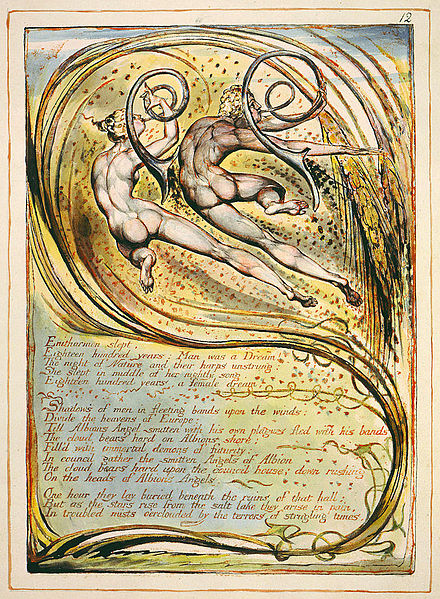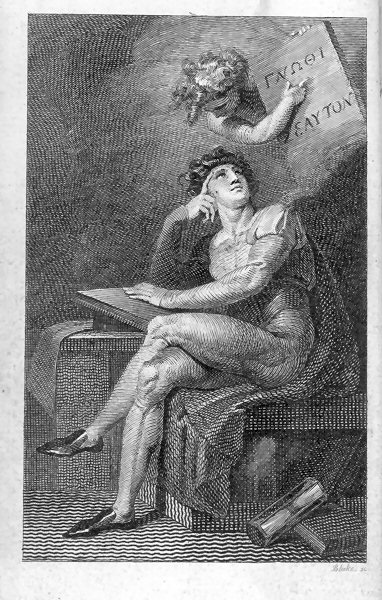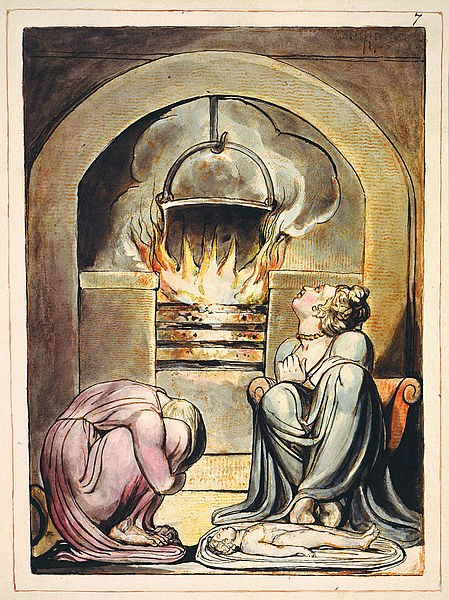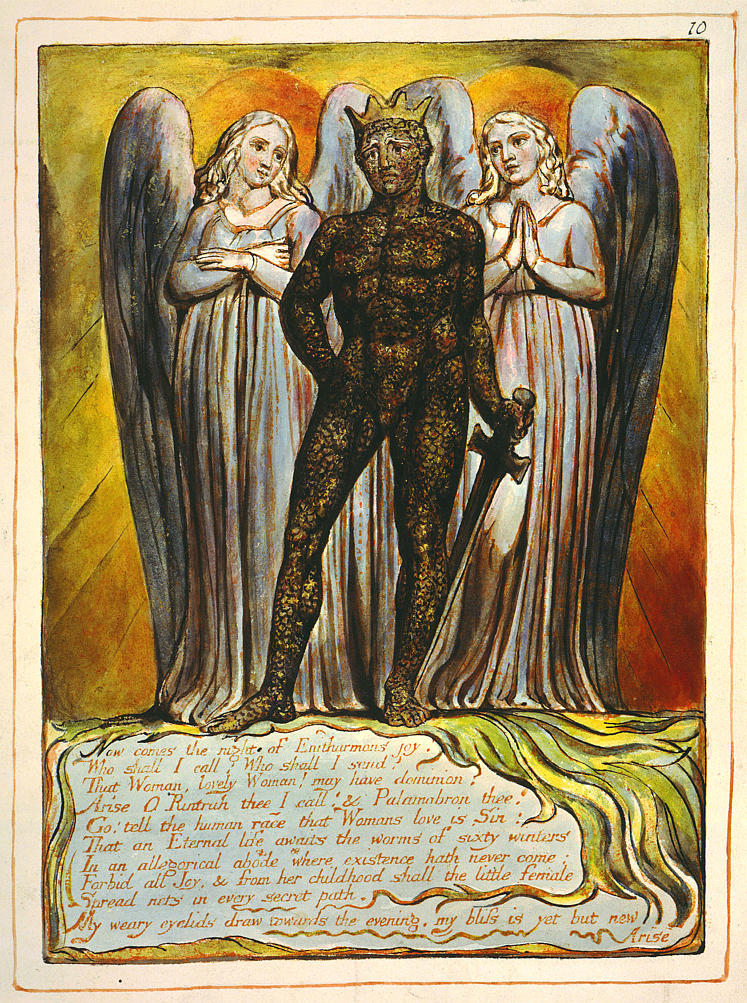"May 24th. — A very interesting day. At half-past
ten joined Wordsworth in Oxford Road ; we then got
into the fields, and walked to Hampstead. I read to
him a number of Blake's poems, with some of which he
was pleased. He regarded Blake as having in him the
elements of poetry much more than either Byron or
Scott."
Blake
apparently paid more attention to Wordsworth than vice versa. In this
passage from Harold Bloom's commentary in Erdman's The
Complete Poetry and Prose of William Blake, Bloom
comments on the transcript produced by Blake of Wordsworth's
Preface and the lines quoted there from "the first Book of the
Recluse". Even the punctuation became a means that Blake used
to differentiate his thought from Wordsworth's.On Page 666 Bloom writes:
"Annotations to the Preface to The Excursion, being a portion
of The Recluse, A Poem, by William Wordsworth. London, 1814
Blake's transcript and comment (in 1826) on Wordsworth's
Preface and the lines quoted there from "the first Book of the
Recluse" are in Dr Williams's Library, London.
...
He capitalized rather heavily: Wordsworth's "good and evil of our
mortal state" became "Good & Evil of our Mortal State", and Blake
insisted on capitalizing Law Supreme, Earth, Heaven, and "Worlds
To which the Heaven of Heavens is but a Veil", also "darkest Pit"
and "Song"; but he resisted several of Wordsworth's capitals,
turning "prophetic Spirit! that inspir'st / The human Soul of
universal earth" to "Prophetic Spirit that inspirest / The Human
soul of Universal Earth". Similar reversals of case were:
"illumination,--may my Life" to "Illumination may my life" and
"My Heart . . . thy unfailing love" to "My heart . . . thy
unfailing Love"."
Henry Crabb Robinson makes an amusing but revealing remark about Blake on page 303 of his above mentioned book:

British Museum
Illustrations to Young's Night Thoughts
To Blake Poetry was not to be taken lightly. We can imagine him disputing with angels as he wrote:
Milton, Plate 41 [48], (E 142) "To cast off the idiot Questioner who is always questioning, But never capable of answering; who sits with a sly grin Silent plotting when to question, like a thief in a cave; Who publishes doubt & calls it knowledge; whose Science is Despair Whose pretence to knowledge is Envy, whose whole Science is To destroy the wisdom of ages to gratify ravenous Envy; That rages round him like a Wolf day & night without rest He smiles with condescension; he talks of Benevolence & Virtue And those who act with Benevolence & Virtue, they murder time on time These are the destroyers of Jerusalem, these are the murderers Of Jesus, who deny the Faith & mock at Eternal Life: Who pretend to Poetry that they may destroy Imagination; By imitation of Natures Images drawn from Remembrance These are the Sexual Garments, the Abomination of Desolation Hiding the Human lineaments as with an Ark & Curtains Which Jesus rent: & now shall wholly purge away with Fire Till Generation is swallowd up in Regeneration."












_-_Google_Art_Project.jpg/407px-William_Blake_-_Europe._A_Prophecy,_Plate_6,_%22The_shrill_winds_wake_._._._._%22_(Bentley_7)_-_Google_Art_Project.jpg)
_Title_Page.jpg/470px-Robert_Blair,_The_Grave,_object_2_(Bentley_435-1)_Title_Page.jpg)